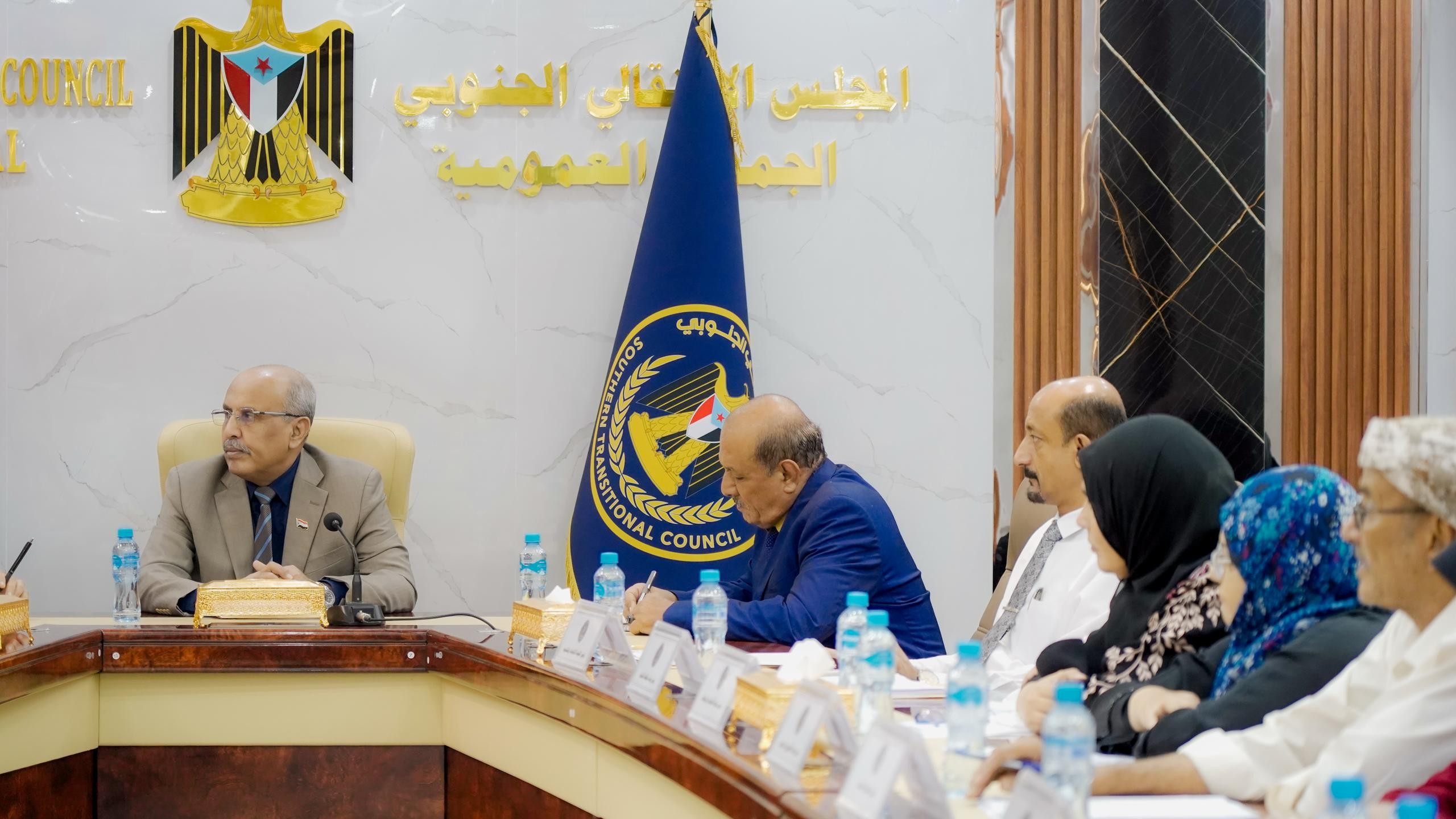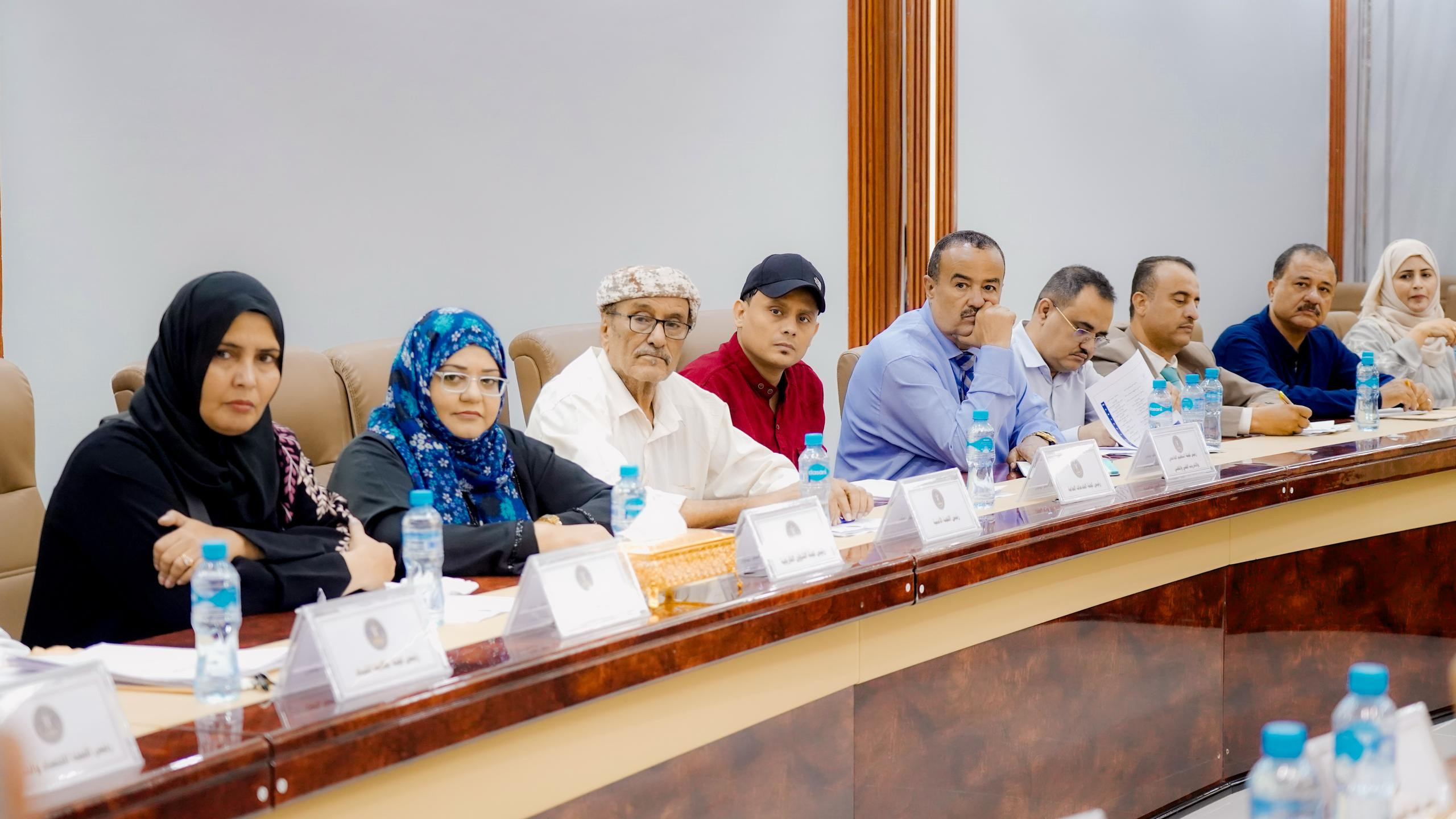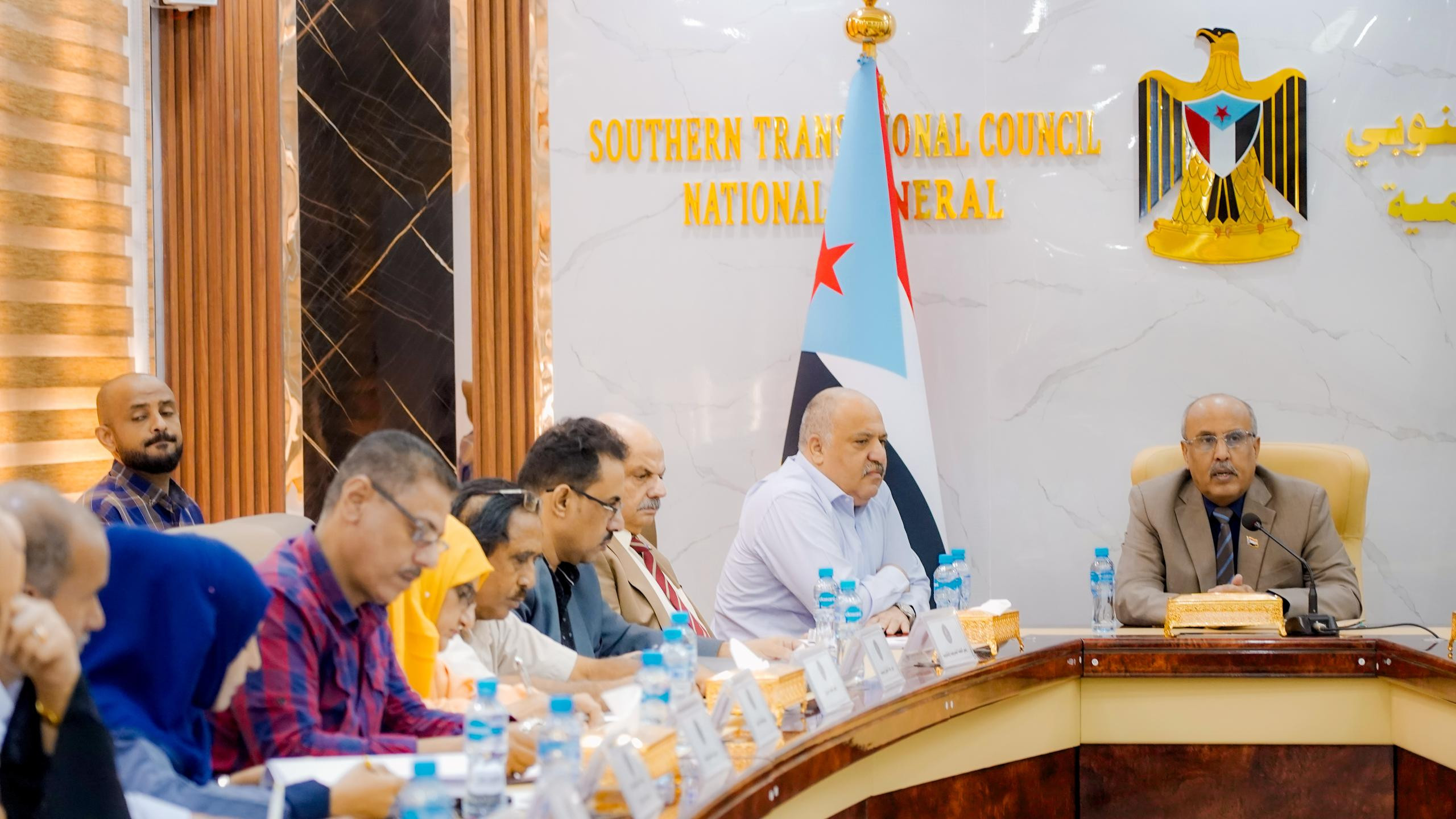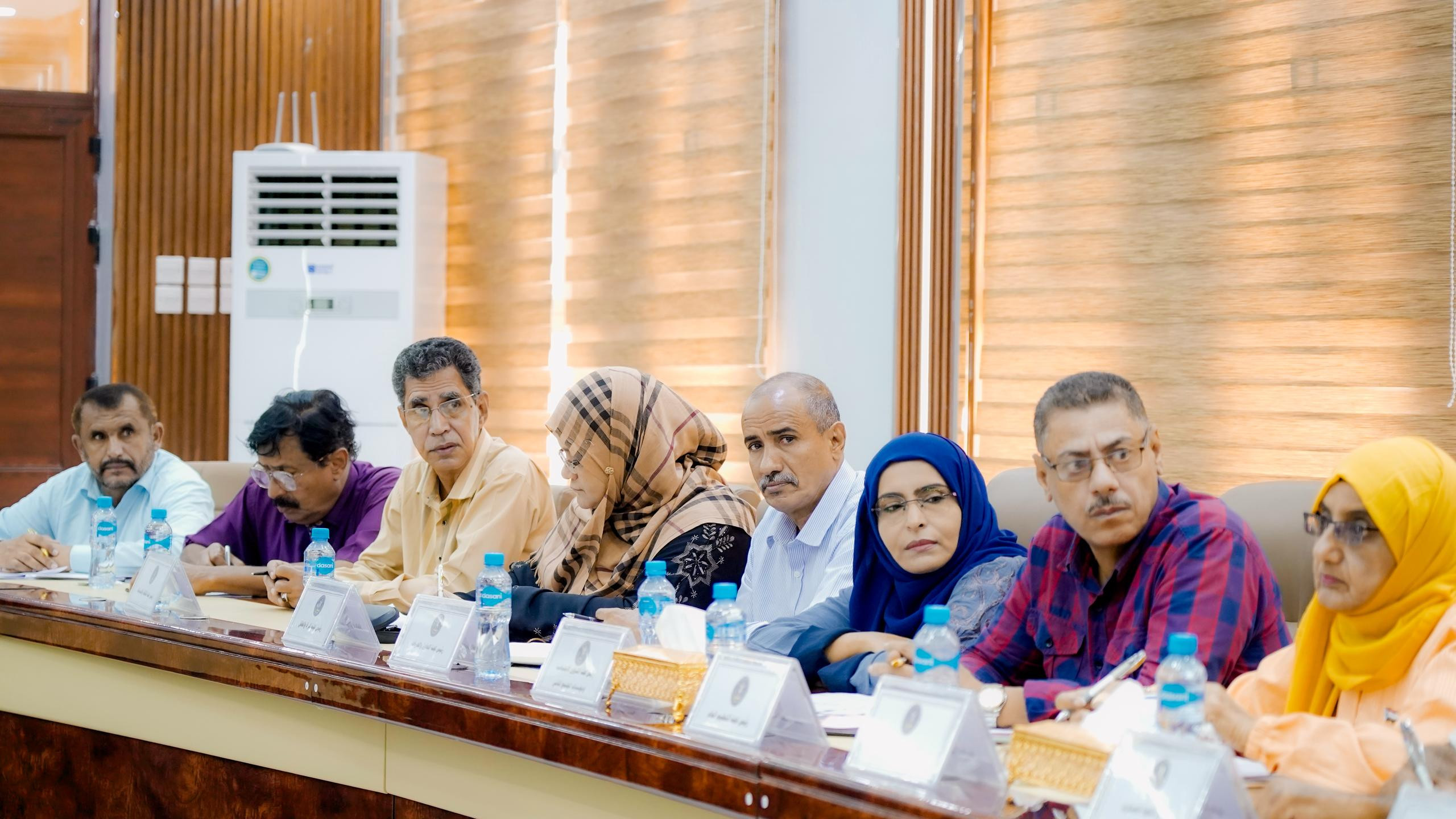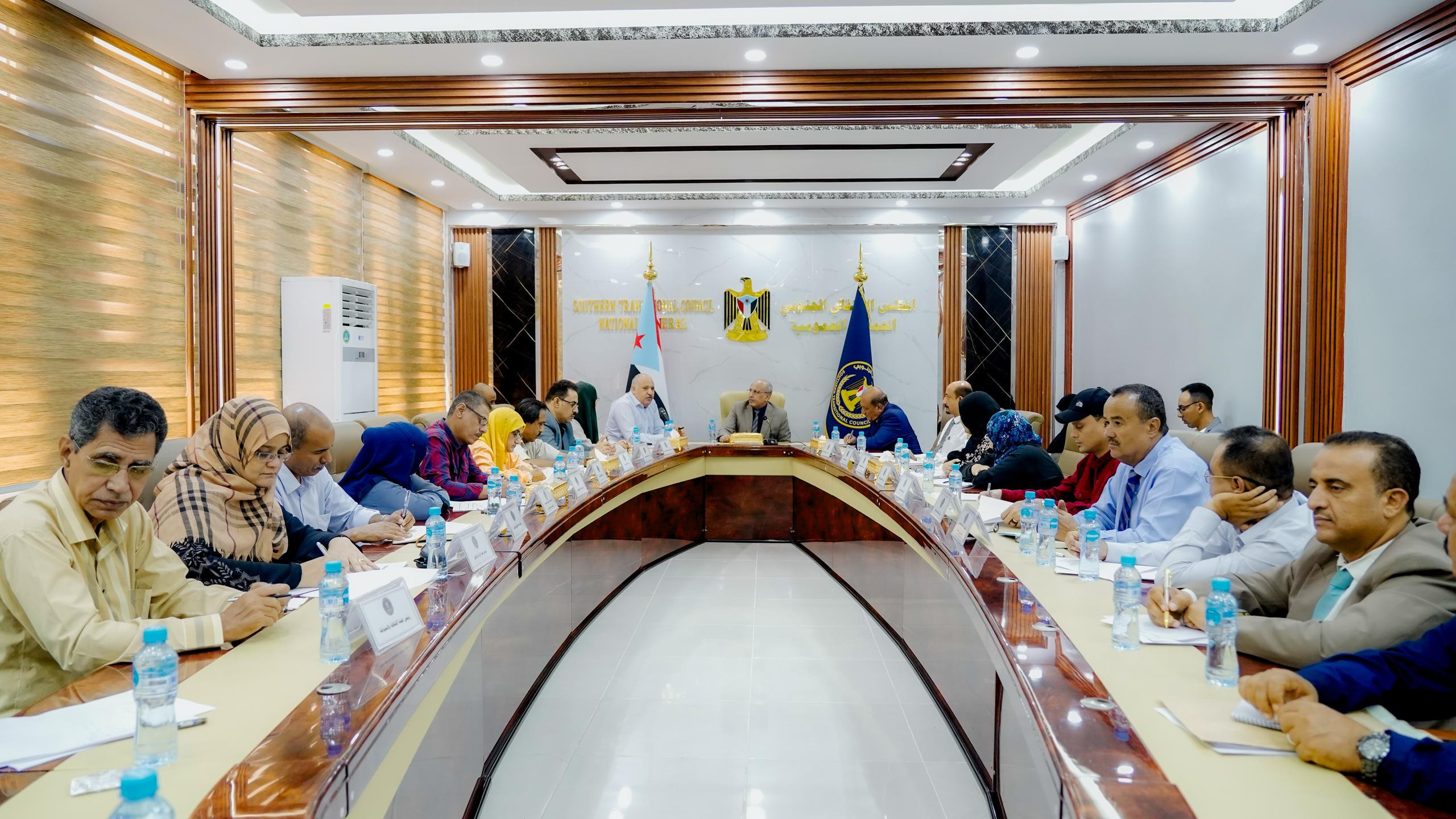Al-Muharrami Stresses Key Role of Private Sector in Stabilizing Currency and Growing Economy
Mr. Abdulrahman Al-Muharrami, Deputy President of the Southern Transitional Council (STC) and member...
The Administrative Body of the National Assembly of the Southern Transitional Council (STC) held its regular meeting on Wednesday, headed by Mr. Ali Abdullah Al-Kathiri, Chairman of the National Assembly.
At the beginning of its meeting, which was attended by Mr. Essam Abdo Ali, deputy chairman of the Assembly, the administrative body applauded the outstanding success of the "Hadramaut First" massive rally event, which was a milestone in the unrelenting struggle through which the people of Hadramaut expressed their national awareness and their rejection of attempts to return the tools of Yemeni occupation, reiterating their demands to empower the Hadrami Elite Forces (HEFs) to extend their security control over the entire territory of Hadramaut.
In its meeting, the body reviewed the latest developments in the service, economic, and living conditions in the South, which have recently sparked public anger and protests that took to the streets, with a focus on the deterioration of electricity service and poor power generation in the capital, Aden, and the rest of the governorates of the South, coinciding with rising temperatures and the onset of summer.
In the same context, the body praised the sophisticated and responsible manner in which the security services of the South have handled the protests and public demonstrations resulting from the deterioration of basic services in the country and reiterated its support for the people's right to peaceful protest and expression—away from violence and chaos—and stressed the importance of preventing the enemies of the South from exploiting the current public unrest to undermine security and stability in the capital, Aden, and other governorates of the South.
In this regard, the body cordially invited the management of the Public Electricity Corporation (PEC) during the meeting, where it received a briefing from Eng. Majeb Al-Shaabi, Director-General of the PEC, who provided a transparent and detailed explanation of the electricity situation in the capital, Aden, and other liberated governorates. The briefing outlined the root causes behind the widening gap in the deterioration of this vital service, including the challenges in sustainably securing fuel supplies. Al-Shaabi emphasized that the government has not responded seriously or engaged effectively with the repeated appeals made by the PEC.
Eng. Al-Shaabi also reviewed a series of recent measures taken to address the escalating challenges facing the electricity sector, including efforts by the Ministry of Electricity and Energy to help alleviate fuel supply shortages and curb the growing issue of illegal power connections. In addition to that, he provided a brief explanation of the fundamental reasons behind the decision to cancel all purchased power agreements.
During the meeting, the heads of the Assembly's committees posed a series of questions and inquiries to Eng. Al-Shaabi, along with several insights and suggestions aimed at improving electricity service, and they unanimously agreed on the need to continue holding intensive meetings with heads and experts in the electricity sector to address ongoing challenges and explore viable solutions.
The body called on the Presidential Leadership Council (PLC) and the government to properly assume their responsibilities by urgently providing solutions and securing the required funds to purchase fuel shipments and emphasized the need for fundamental and sustainable solutions to ensure stable electricity in the capital, Aden, and other governorates of the South. They highlighted that the political variations must not prolong citizens' suffering or compromise their dignity.
At the end of the meeting, the body reviewed a report by the Assembly's Economic Committee on the public revenues, expenditures, and allocations of the South, then discussed a range of topics on the agenda and took the appropriate measures regarding them.
